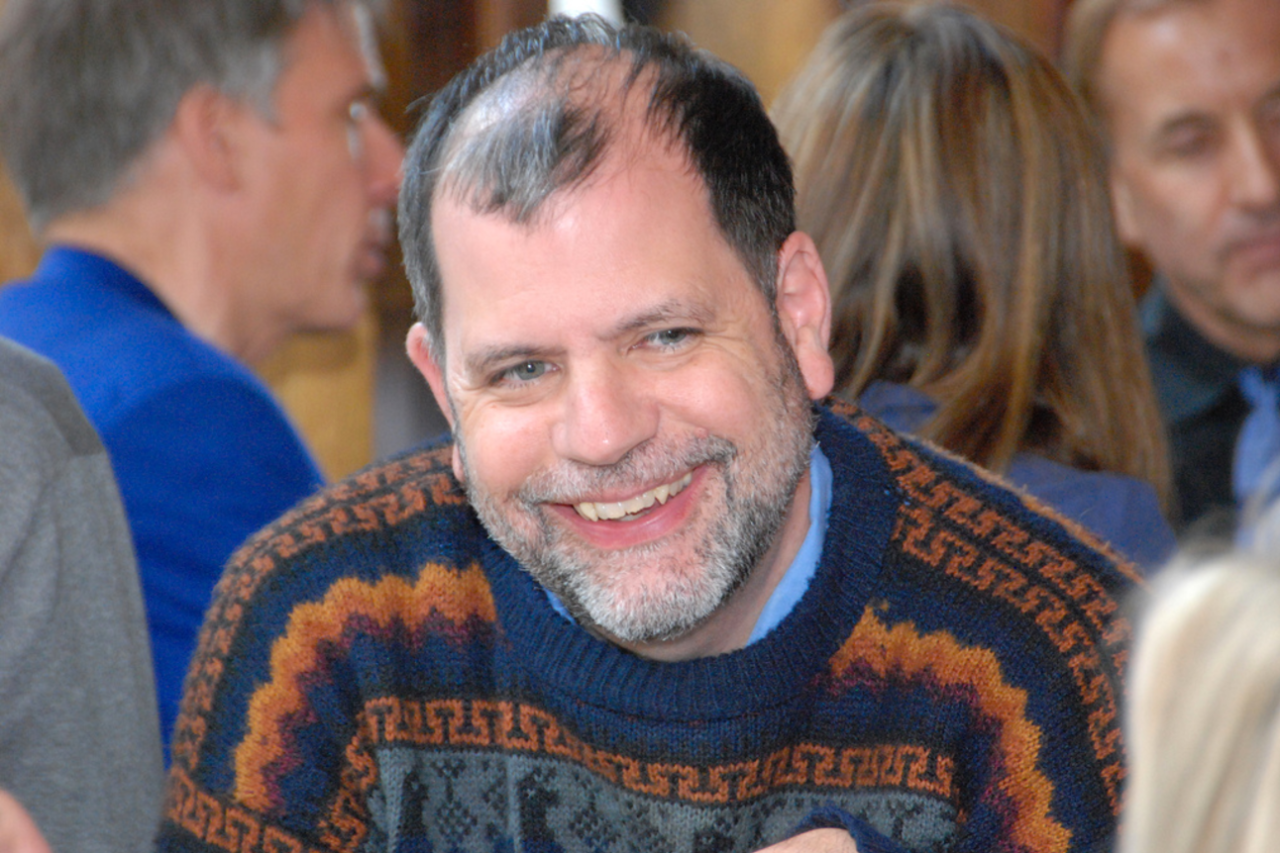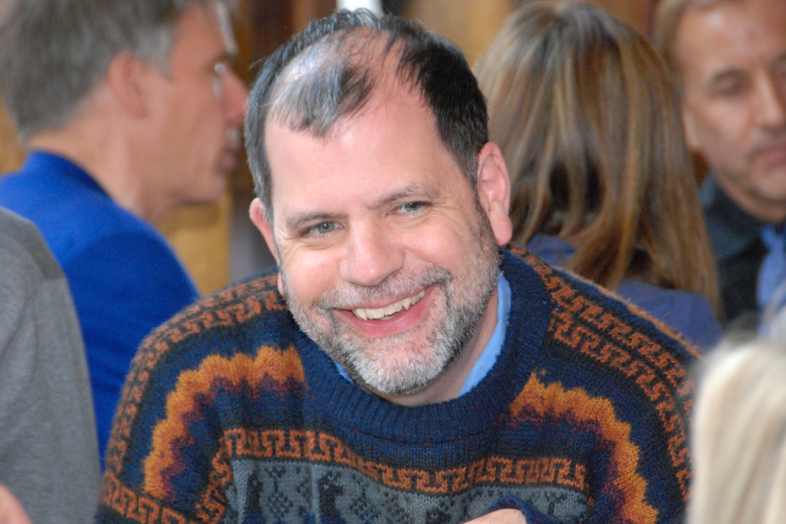
29 Lessons I Learned From Tyler Cowen About Money, Learning, And Life
Don’t worry as much about disruption and chaos—it might simply mean interesting things are happening—fear stability and complacency because it means decay.
By ![]() Ryan Holiday
Ryan Holiday

There is this myth that mentors are people you have to know and see. That it is some official designation to seek out. I’ve never met Tyler Cowen, the bestselling author, economist and thinker. We’ve never spoken on the phone. Our longest email conversation might have been three sentences. Yet he has been one of the most significant influences in the education and evolution of my life. By every definition, he’s been what you would call a mentor.
Lately, I’ve been trying to write about all the ways people have helped me. It’s been an exercise in gratitude but also articulation—in writing it down, I am remembering it and codifying it so I never forget the lessons. Below are just some of the things I’ve learned from this polymathic professor of economics, voracious reader and contrarian philosopher. Maybe you’ll be lucky enough to meet him one day (I hope I am) but even if you don’t, he can still be your mentor.
Below are 29 lessons I learned from Tyler over the last 10 years. Hope you gain from them as much as I have.
1. See Yourself Afresh — This is one of my favorite quotes from Tyler: “Treat yourself like a piece of your writing which you set aside for a week so you could look at it fresh.”
2. Being Curious Is a Career — It was crazy to me at first that Tyler got to do what he did for a living: write blog posts, read books, have ideas. That’s what I wanted to do. I think the way you get paid to do that is by making that curiosity valuable to other people: Tyler blogs every day and his links and questions help people do their jobs, his books propose provocative big ideas, his podcast is entertaining and important. You can’t just nerd out—there has to be value creation
3. Complacency Is the Enemy — Tyler’s newest book (which is awesome) is about all the ways that society has become complacent. We accept the status quo, we don’t want to disrupt it. People move less, change careers less, change their minds less, live in less diverse places, riot less than they used to. I’ve done most of those things in my life (except the last one), it’s how you keep things interesting and find opportunities. Point being: Don’t worry as much about disruption and chaos—it might simply mean interesting things are happening—fear stability and complacency because it means decay.
4. Seek Out Quake Books— When I was 19 or 20, Tyler talked to me about the concept of “quake books”—books that shake you to your core. As he wrote in his 2007 email to me: “I would more likely intensively engage with some important book totally full of new ideas. Hayek. Parfit. Plato. And so on. There just aren’t books like that left for me anymore. So I read many more, to learn bits, but haven’t in years experienced a ‘view quake.’ That is sad, to me at least, but I don’t know how to avoid how that has turned out. So enjoy your best reading years while you can!”
5. What’s the Cost of This Fight? — There is a line in one of Tyler’s books where he talks about fighting with a spouse over a couch (or something like that). He says that maybe you like your idea 20% more than her/his idea, so you fight and win. Now you’re a little bit happier. But what did that victory cost you in terms of an unhappy spouse? Is it worth more or less than how much you value your opinion over the couch? I never would have thought about it that way—I can’t tell you how many arguments this has saved me. (The answer is ‘not enough.’)
6. Expectations Are the Enemy in (Long Distance) Relationships — I was in a long distance relationship in 2006 when I read Tyler’s post on them. It was another brilliant perspective that helped me relax and made things better. I ended up marrying that girl a decade later. Thanks Tyler!
7. Know What is Scarce — “In today’s global economy here is what is scarce: 1. Quality land and natural resources 2. Intellectual property, or good ideas about what should be produced. 3. Quality labor with unique skills.” I framed the longer passage this line is from and I have it above my desk as a daily reminder. It comes from Average is Over—another absolutely amazing book.
8. To Speed Read, Read A Lot — How do you become a better and more prolific reader? I’ll let Tyler tell you: “The best way to read quickly is to read lots. And lots. And to have started a long time ago. Then maybe you know what is coming in the current book. Reading quickly is often, in a margin-relevant way, close to not reading much at all.”
9. Knowledge Compounds — I think what he’s also saying there is that the value of reading compounds over time. Reading more makes you a better and faster reader, learning about stuff makes it easier and faster for you to learn more.
10. Your Life Is Not a Story — Tyler has observed that most people describe their lives as stories and journeys. But giving in to this temptation can be dangerous. Narratives often lead to an overly simplistic understanding of events, causes, and effects—and, often, to arrogance.
11. Move to Texas — In 2013, Tyler wrote a Time cover story about why everyone was moving to Texas. That’s not quite why I moved to Austin but it didn’t hurt.
12. When Traveling, Pretend You’re A Thief — I like his trick when visiting museums: Pretend you’re a thief who is casing the joint. It changes how you perceive and remember the art. Try it.
13. Just Go — Another travel tip from Tyler: “My main tip is simply: “Go, go go!” Go. People have a status quo bias when they make decisions and they don’t take enough chances.”
14. Read However You Want — People are amazed at how much Tyler reads (it’s a lot) but they miss that he has his own set of rules for doing it. He skips around. He quits books he doesn’t like. He might read a novel from only the perspective of one of the characters. He’ll ruin the ending. He just does whatever—and so you should you. This isn’t for a test. It’s for your own enjoyment (he does the same with movies apparently).
15. Be a Good (But Quiet) Family Man — Even though Tyler talks about all sorts of parenting stuff in his books, it really never occurred to me that he had kids until I heard him mention something about it on his podcast. I don’t think I’ve ever read anything about his wife. I have a lot of respect for people who have families…but don’t parade them around like some trophy. He has a family, it’s important to him, but that’s his business. It’s how I try to live my life too.
16. Really Understand Other People’s Work — What you’ll hear when you listen to Tyler’s podcast is just how deeply he has set out to understand the work of the person he’s talking to. I think in some ways he understands the arc of the person’s career better than they do. This is a special skill. It requires getting out of your own head and actually thinking about someone else (that’s not something podcasts are known for…).
17. Read Eclectically — Another reading rule: Check out a couple of these most recent “What I’m Reading” posts from Tyler. Look at how diverse the subject matter is. Books about far right politics in Europe, the diary of a Stalin ambassador, histories of the Irish border, a book on the quartet of Alexander Hamilton, George Washington, John Jay, and James Madison, one right after another.
18. Money Can Sap Motivation — In Discover Your Inner Economist, Tyler writes about how he tried to incentivize his step-daughter to do the dishes so he resorted to paying her, which got her to wash them—but it worked only for a week. “I knew this could happen. I understood that there is such a thing as intrinsic motivation and that if you pay people, you might weaken that. What I didn’t really get was the control issue. That when you start paying people to do a thing, they often see it as control.” (The story has a happy ending: She started washing the dishes for free after reading the book.)
19. Order Weird Stuff on the Menu — If the weird thing wasn’t good, goes his logic, the chef probably wouldn’t have been allowed to put it on there. Sure—I’ll buy it.
20. Don’t Be Afraid to Have a Partner — Tyler’s site, Marginal Revolution, has a co-writer named Alex Tabarrok. He’s the unsung hero of that site and many of his articles are longtime favorites of mine. You don’t have to do everything yourself. In fact, you should have intellectual and creative partners. It’s powerful.
21. Write The Opposing View — It’s not just enough to think about how other people might think. One of his more recent opinion pieces shows how far Tyler is willing to go when it comes to empathy: He suggests actually writing—as if it’s you—an article with someone else’s opinion. See if you can explain why Trump is doing this or that, or why your parents believe this or that. Feel those words coming through your fingers—do you understand them better? Are things less contentious? I love this idea.
22. How to Thoughtfully Disagree — I’ve read a lot of Tyler Cowen writing over the years. Tyler is smart, opinionated and contrarian. It occurs to me there is one thing I’ve never seen from Tyler: contemptuous dismissal of anyone else. That’s something I know I need to work on. I take things too seriously, I condescend, I speak with undeserved certainty. Meanwhile, Tyler entertains basically everything. He’s friendly even when he disagrees. He’s open-minded. It’s a great model for any aspiring thinker.
23. Think Rationally, Not Emotionally — Two interesting posts from Tyler stand out to me, both about Peter Thiel. One was after the Gawker lawsuit, where Tyler stripped the emotion out of the debate and just looked at how third party funding works and how common it is. Two, after Peter’s controversial comments in the New York Times about whether there is “too little” or “too much” corruption, Tyler actually tried to figure out what the guy was talking about (it’s actually kind of interesting). Point being: Don’t get caught up in outrage or emotions, earnestly try to figure stuff out.
24. Cultivate Young Smart People — Like I said, I don’t know Tyler, but he’s nice enough to occasionally answer my emails. I know he answers emails from people like Ben Casnocha and Cal Newport and I’m sure there are hundreds—if not thousands—of young people he’s helped over the years (students or otherwise). He doesn’t need to do this but he does. It’s paying it forward.
25. Watch One TV Show at a Time — Tyler has a great rule about not watching more than one big TV series at a time.
26. Don’t Offer to Work for Free — From Average is Over: “It doesn’t matter how flexible the wage is in the more complex, less brute force jobs. A manual worker who just shows up at your door is probably not someone you want to hire unless it is already part of a preexisting business plan with broad buy-in from your enterprise and your creditors. The worker might say, “I’ll lower my wage demands by thirty percent!” or, “I’ll work for nothing!” It usually won’t matter. The sad reality is that many of these workers you don’t want at all, even if the business plan involves additional labor. Some workers simply aren’t worth the trouble unless the demand for extra labor is truly pressing.”
27. Command Your Audience — I’ve become addicted to Tyler’s podcast. Aside from the conversations, a secondary pleasure is his command over the audience (‘I will cut you off.’ ‘We will be out of this room by 5pm.’) and his very specific questions. His confidence and directness was not something I expected to hear, but it’s impressive. I can’t tell you how many conferences I’ve been to where I wished for someone like that.
28. For Good Food, Go to The Suburbs — As Tyler writes in his rules for dining out, “I love exploring the suburbs for first-rate ethnic food. Many people consider suburbs a cultural wasteland, but I am very happy searching for food in Orange County, California; the area near San Jose; Northern Virginia, near D.C.; Somerville, Massachusetts; and so on. I don’t always pre-Google to find the best place, and I don’t keep tapping on my iPhone. I drive around and keep my eyes open for dining establishments likely to follow the economic rules for good, innovative, and affordable food.”
29. Ask: Do Your Actions Match Your Beliefs? — The Tyler post that has me thinking the most lately is something he said after the election of Donald Trump. A good portion of the country thought Trump was dangerously unfit for office and would enact terrible, destructive policies…yet the markets have steadily gone up. Why don’t we see more people acting on these beliefs? Why aren’t there more short sellers in the market? More doomsday preparations? His point: People love to talk but rarely match their actions with their beliefs. This is both a contradiction or a potential market opportunity. It’s made me re-examine my actions in regards to both.
**
I could keep going but it might start to seem weird. Besides, the other thing I’ve learned from Tyler is this: keep it short. Almost all his blog posts are pithy—sometimes just a few sentences long. Even his opinion pieces are tight and to the point. So I’ll end it here. If you want to learn from Tyler, go read his stuff. He’s the best. ![]()











